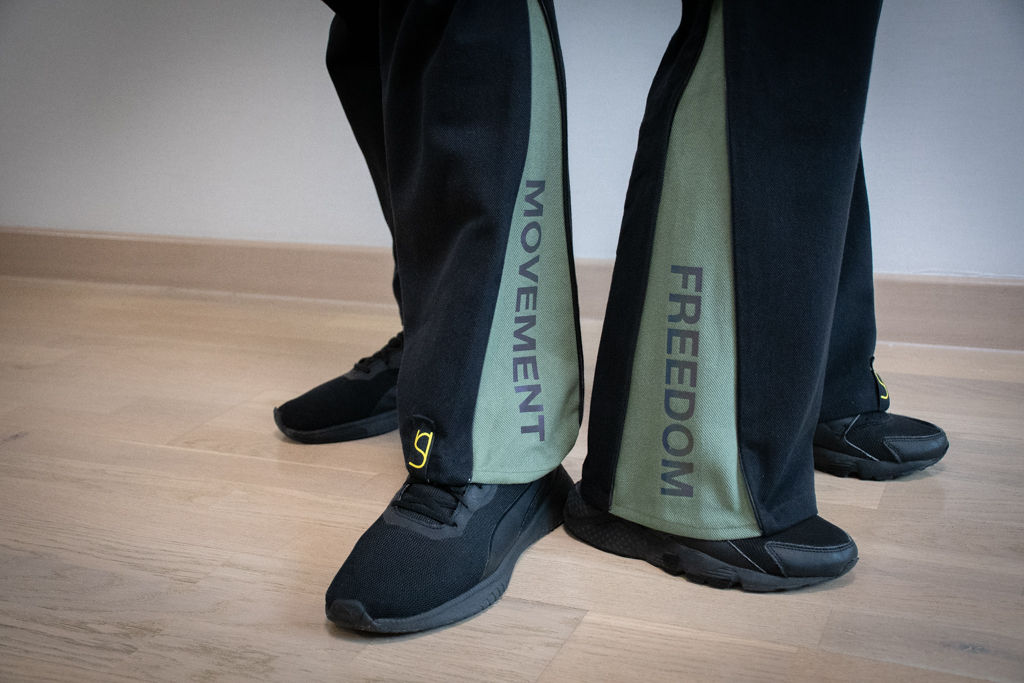
The freedom to move freely, live in any corner of one’s own country, travel abroad, and choose a place of residence at one’s discretion is an important element of everyone’s freedom.
“1. Everyone has the right to freedom of movement and residence within the borders of each state. 2. Everyone has the right to leave any country, including his own, and to return to his country,” declares the Universal Declaration of Human Rights.
“Everyone who is lawfully present on the territory of Ukraine is guaranteed the freedom of movement, the free choice of residence, the right to leave the territory of Ukraine freely, except for the restrictions established by law (…),” as stated in the Constitution of Ukraine.
This fundamental freedom is protected by the European Convention on Human Rights and the International Covenant on Civil and Political Rights.
One of the most vulnerable groups in the context of freedom of movement is foreigners residing in another country. Among them are refugees, for whom returning to their country may pose a significant risk of persecution based on race, religion, nationality, membership in a particular social group, or political opinion. Asylum seekers, who have left their country hoping for protection in another state, and immigrants, who have moved to another country seeking to stay there and build their future, are also at risk. Their fate largely depends on the government of the country they are in, and therefore, their freedom of movement and choice of residence are potentially under threat.
There was a case when the government of Ukraine initially decided to extradite a citizen of Kazakhstan but then halted it after intervention by the European Court of Human Rights. The court applied interim measures at the request of this Kazakh citizen. Such a decision was based on the high probability that this person would face torture and denial of justice in Kazakhstan. This is the case of “Dzhakisbergenov v. Ukraine.” Anwar Dzhakisbergenov himself in Kazakhstan was accused of serious financial wrongdoing, and the decision of the European Court does not obviate the need to consider such a case in a fair and independent court.
There are cases where freedom of movement is excessively restricted by state authorities in situations where a person has debts on loans or debts recognized by the court.
In the case of “Gotshev v. Bulgaria,” the European Court recognized a violation of freedom of movement by prohibiting a person who was indebted to private companies from leaving the country. The European Court justified its decision by the fact that the applicant was subject to an automatic ban on leaving the country without the opportunity to explain the reasons for his debt and for an indefinite period.
In 2011, the Supreme Court of Ukraine ruled that the prohibition on debtors traveling abroad temporarily did not comply with the Constitution of Ukraine. It all started when the Supreme Court overturned the decisions of district and appellate courts in a lawsuit filed by one of the commercial banks that imposed such unlawful restrictions on three individuals who were debtors on a loan.
Cases of restricting freedom of movement for those suspected of committing crimes and subjected to preventive measures prohibiting them from leaving their place of residence are common. For example, in the case of “Ivanov v. Ukraine,” the applicant complained about prolonged restrictions on his freedom of movement as a result of a decision on non-departure. In 1995, he had a quarrel with neighbors, which escalated into a fight. Criminal proceedings were initiated against the applicant for causing moderate harm, and in 1996, he was charged with malicious hooliganism. The investigation lasted until 2006, and for over ten years, the applicant could not leave his place of residence.
The European Court agreed that the state authorities acted within the law and aimed to ensure criminal prosecution. However, considering that the charges against the applicant were dropped in 2000 due to the statute of limitations and that the imposed restriction was prolonged, the Court recognized that such interference with freedom of movement was disproportionate to its aim. Thus, freedom of movement, as protected by Article 2 of Protocol No. 4 to the Convention, was violated.
Currently, in Ukraine, there are restrictions on the departure abroad for certain individuals who may be mobilized for military service, especially men. This is an example of when restricting freedom of movement is necessary in wartime conditions.
The issue of observing freedom of movement is relevant in many situations. For example, when the state tries to track information about leaving and entering the country or moving within the country, when there are obstacles to obtaining education abroad, reuniting with family, and so on.
What examples do you know related to freedom of movement?
Share stories about human rights and get acquainted with stories sent by others in our community! This way, we can promote human rights and create a society where human dignity and the values of freedom and equality are respected.
Send your stories here … We will publish them on our portal ….
Read, listen, watch stories of others here ….
